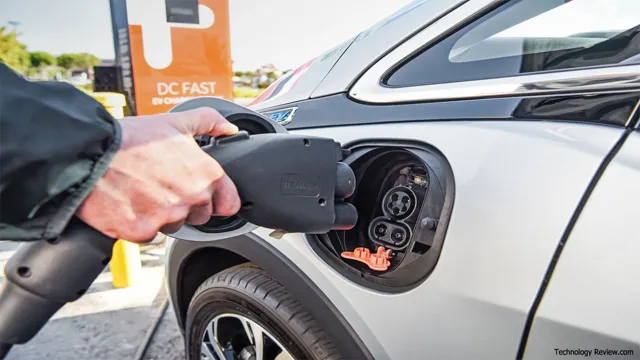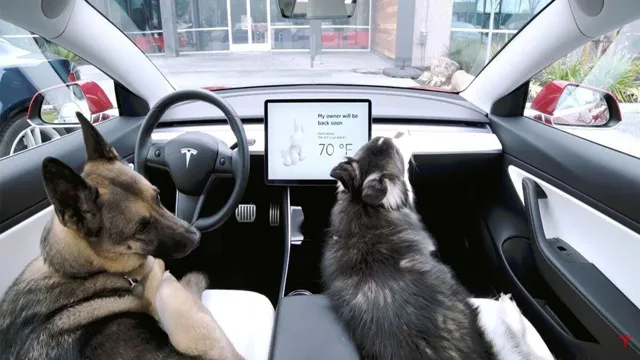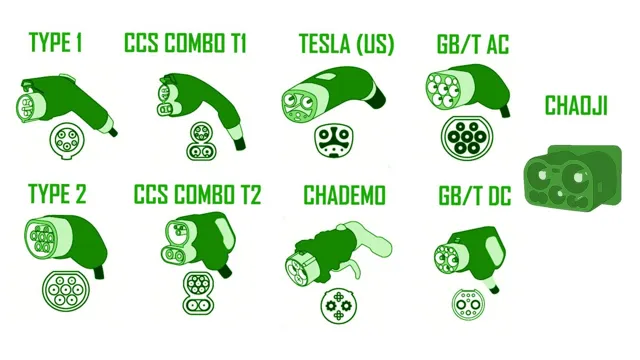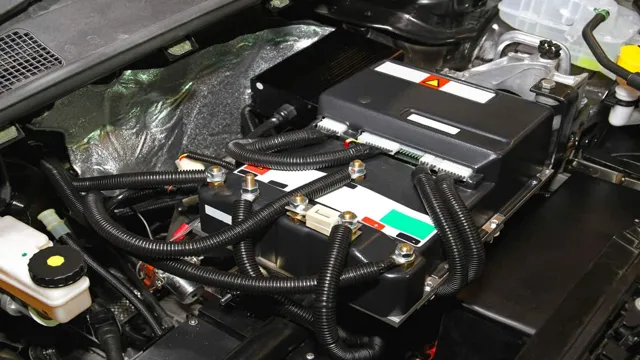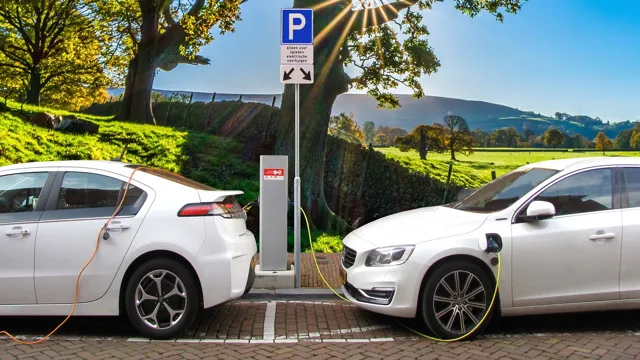Revolutionizing Transportation: How Electric Cars are Rescuing Our Planet
Electric cars have become a popular trend in recent years. As sustainability becomes a more pressing issue, people are looking towards environmentally friendly solutions to reduce their carbon footprint. Electric cars have emerged as a smart and responsible alternative to traditional gas guzzlers.
They are not only a stylish mode of transport, but they also help save the planet by reducing emissions from fossil fuels. Electric cars operate on a rechargeable battery, which means they do not emit toxic substances into the air. This is a game-changer in the automobile industry, as traditional vehicles emit harmful gases that lead to air pollution, global warming, and other environmental problems.
By driving an electric car, individuals can contribute to the fight against climate change and ensure sustainable development. The benefits of electric cars are not limited to the environment alone. They also offer a more cost-effective solution for drivers who want to save money on fuel and maintenance costs.
Electric cars require less maintenance and servicing, which means lower costs in the long run. Additionally, these cars don’t rely on fossil fuels, so there is less volatility in fuel prices. In conclusion, electric cars offer a host of benefits for both individuals and the environment.
By reducing emissions and promoting sustainable development, electric cars are changing the face of the automobile industry. As we move towards a greener future, electric cars provide a practical and responsible solution for those who want to make a positive impact on the planet.
Reducing Greenhouse Gases
Electric cars have been gaining popularity in recent years as people become more conscious of their impact on the environment. But how do electric cars save the planet? It’s simple, really – electric cars emit significantly fewer greenhouse gases than their gas-guzzling counterparts. According to the Union of Concerned Scientists, the average electric car produces 4,500 fewer pounds of CO2 emissions per year compared to a gasoline car.
This is because electric cars are powered by electricity rather than fossil fuels, which results in a 99% reduction in emissions of nitrogen oxides and particulate matter. Electric cars also don’t produce any emissions when they’re at a standstill, which is a significant contributor to smog in urban areas. The shift to electric cars is just one piece of the puzzle when it comes to reducing greenhouse gases, but it’s an important one.
By choosing an electric car, you’re helping to ensure a brighter, cleaner future for our planet.
Less Carbon Emissions
Reducing greenhouse gases is crucial in resolving environmental issues and mitigating climate change. Carbon emissions play a large part in the production of greenhouse gases, which trap heat in our atmosphere and lead to rising temperatures. To address this problem, individuals and companies can take steps to minimize their carbon footprint by reducing energy consumption, utilizing renewable energy sources, and investing in energy-efficient technology.
Governments can also play a critical role by implementing policies that promote sustainable practices and incentivize carbon reduction. By working together to reduce greenhouse gas emissions, we can lessen our impact on the environment and create a more sustainable future for generations to come.
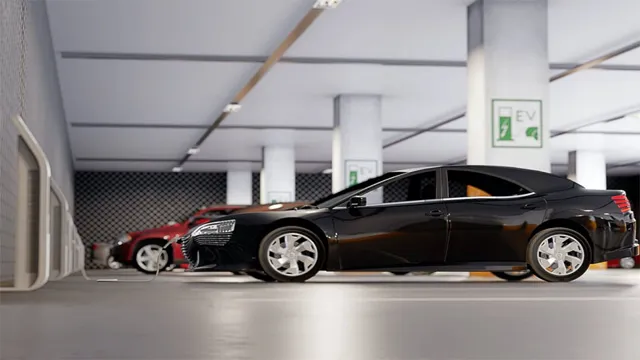
Air Pollution Reduction
Reducing greenhouse gases is a crucial step in reducing air pollution levels. Greenhouse gases, such as carbon dioxide and methane, are released into the atmosphere when we burn fossil fuels for energy or use transportation that requires petroleum-based fuels. These gases trap heat in the earth’s atmosphere causing global warming and climate change.
One way to reduce greenhouse gas emissions is by transitioning to renewable energy sources, such as wind, solar, and hydro power, and using electric vehicles instead of gasoline-powered cars. Another effective method is carbon capture and storage technology, which captures emissions from industrial processes before they enter the atmosphere and stores them underground. By implementing these measures, we can reduce the amount of greenhouse gases released into the atmosphere and mitigate their harmful effects on our environment.
Energy Efficiency
When it comes to fighting against climate change, electric cars have been an ally for the environment. But how do electric cars save the planet? The key to energy efficiency is that electric cars use less energy than regular cars, which means fewer carbon emissions. This happens because electric cars run on electricity, which is a cleaner source of energy compared to gasoline.
Additionally, electric cars have regenerative braking, which means they use the energy they produce when braking to recharge the battery. By doing this, electric cars cut down on energy waste, which makes them more efficient. Moreover, electric cars can help reduce dependence on fossil fuels and can be powered by renewable energy sources, such as solar panels or wind turbines.
So, the next time you hit the road with your electric car, remember that you’re making a big difference in the fight against climate change.
Renewable Energy Sources
Energy efficiency is a crucial aspect of the world’s shift towards renewable energy sources. By reducing the amount of energy we consume, we can minimize our dependence on non-renewable sources of power and limit our carbon footprint. There are numerous ways we can improve our energy efficiency, both on an individual and a larger scale.
Retrofitting buildings with insulation, replacing outdated appliances with energy-efficient models, and implementing smart lighting systems are just a few examples. Businesses and governments can also play a role by investing in renewable energy technology and promoting energy efficiency initiatives. The benefits of improving energy efficiency extend beyond the environmental impact; it can also save money on utility bills and increase the comfort and value of homes and buildings.
As the world continues to prioritize renewable energy sources, energy efficiency will become even more critical in ensuring a sustainable future for generations to come.
Less Energy Wasted
Energy efficiency is a critical factor in reducing energy waste. It is achieved by using modern technologies and materials that allow you to consume less energy while maintaining or even improving performance. By improving energy efficiency, you’ll consume less power and reduce the environmental impact of your activities.
For example, you can reduce heat loss in your home by installing double-glazed windows, insulating your walls and roof. It will help to save energy, reduce your power bills and limit carbon emissions. Similarly, using energy-efficient appliances like LED lights, solar panels reduces energy usage, helps protect the environment and reduce greenhouse gas emissions.
Energy-efficient homes are becoming increasingly popular, and builders now consider energy efficiency a critical factor when constructing a home. They use innovative materials and building techniques to optimize energy performance, which is great for homeowners and the environment.
Reduced Reliance on Fossil Fuels
When it comes to reducing our reliance on fossil fuels, one of the most effective methods to consider is energy efficiency. Simply put, this means that we find ways to use less energy while still achieving the same results – and it’s a win-win situation for both the environment and our wallets. One way to achieve greater energy efficiency is through the use of modern technology like smart thermostats and energy-efficient appliances.
These tools help reduce our energy consumption without sacrificing comfort or convenience. We can also make simple changes to our habits, like turning off lights when we leave a room or unplugging electronics when they’re not in use. By making conscious choices and investing in energy-efficient solutions, we can all do our part to reduce our carbon footprint and protect our planet.
So why not start today and make energy efficiency a priority in your home? It’s an easy step towards a cleaner, greener future.
Less Resource Extraction
Electric cars are helping to save the planet in many ways, and one of the most significant is through less resource extraction. Traditional gasoline-powered cars rely heavily on oil, which is a non-renewable resource that requires expensive extraction processes. Oil extraction can lead to environmental damage, such as oil spills, which can cause long-term harm to ecosystems and wildlife.
But with electric cars, the power source comes from electricity, which can be generated from renewable sources such as wind and solar power. In addition, electric cars require fewer materials to manufacture, as they don’t have as many moving parts as traditional cars. This means less mining and other resource extraction processes, which can also be damaging to the planet.
By reducing the reliance on non-renewable resources, electric cars are playing an important role in protecting the earth and preserving it for future generations.
Reduced Need for Oil Drilling
With the rise of renewable energy sources, there has been a significant decrease in the need for oil drilling and other forms of resource extraction. This reduction in our reliance on fossil fuels is great news for the environment, as it means less pollution, less land degradation and less risk of environmental disasters. Renewable energy sources such as solar, wind, and hydropower have proven to be more reliable and cost-effective than traditional forms of energy generation.
With technological advancements and government support, renewable energy has become increasingly accessible, making it a viable option for communities worldwide. By reducing our need for resource extraction, we can ensure a sustainable future. It’s important to continue investing in renewable energy, so we can reduce our dependence on oil drilling and other resource extraction methods, and pave the way for a cleaner, greener planet.
Lower Demand for Materials Used in Gas Cars
With the growing popularity of electric cars, the demand for materials used in gas cars is decreasing, leading to less resource extraction. This is good news for the environment, as the extraction of resources, such as oil and gas, can have a significant negative impact on ecosystems. Furthermore, the production of gasoline-powered cars requires more resources than their electric counterparts, which means that less material consumption will result in less harm to the environment.
The shift in consumer demand towards electric cars is also reducing the demand for components such as gasoline engines, transmissions, and other drivetrain components. As a result, fewer resources are required to manufacture these parts, leading to a further reduction in material consumption. This is a win for both the environment and the economy, as it reduces the need for the extraction and production of resources, leading to a more sustainable future.
Conclusion: A Better Future for Our Planet
In conclusion, electric cars are the heroes we need to save our planet! They are like those clean-cut, eco-friendly superheroes that swoop in to save the day and reduce our dependence on fossil fuels. By being powered solely by electricity and producing zero emissions, electric cars not only help to reduce air pollution but also help to combat climate change. And let’s not forget that they’re also super stylish and fun to drive.
So, if you want to make a positive impact on the planet and look cool while doing it, it’s time to join the electric car revolution!”
FAQs
What makes electric cars better for the environment than traditional gasoline cars?
Electric cars produce zero emissions, whereas gasoline cars produce harmful gases like carbon dioxide, which contribute to climate change.
Are electric cars more expensive than gasoline cars in the long run?
While electric cars may have a higher upfront cost, they typically have lower maintenance and fuel costs over time, making them more economical in the long run.
How do electric cars impact the electricity grid?
Electric cars can put a strain on the electricity grid during peak charging times, but they can also be used to help balance the grid by charging during off-peak times or selling excess stored energy back to the grid.
Can electric cars really make a significant impact in reducing carbon emissions?
Yes, electric cars have the potential to make a significant impact in reducing carbon emissions, especially if they are powered by renewable energy sources like wind or solar power. This can greatly reduce our reliance on fossil fuels and help mitigate the effects of climate change.

